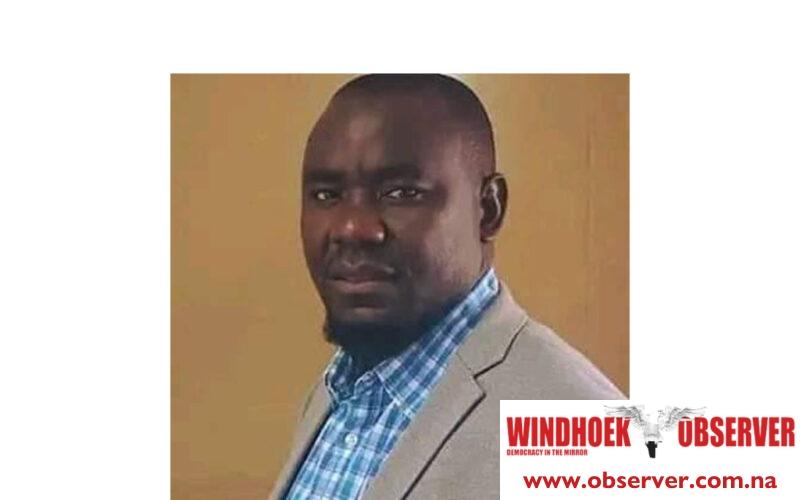“A Call for a Gazetted True & Genuine National Reconciliation Policy”
Lazarus Kwedhi
The death of Solomon “Jesus” Awala, who was given a state funeral in recognition of his role as a liberation struggle hero, has reignited painful questions about Namibia’s war past. While many honour his military service as a PLAN fighter and former Chief of the Namibian Defence Force, others remember his alleged role in the torture and killing of comrades accused of spying in what became known as the Lubango Dungeons. His reputation as the so-called “Butcher of Lubango” has stirred deep anger among survivors and families of victims, fuelling a wider debate about war crimes committed during the liberation struggle for Namibian independence. This controversy not only highlights the silence around atrocities in exile but also exposes the limitations of Namibia’s current approach to national reconciliation. The official stance—“let us forgive, but not forget”, as declared by President Sam Nujoma in 1989—was never formalised into law or a structured policy. Instead, it has remained a political slogan. As a result, victims and offenders of wartime abuses have been left without a framework for truth-telling, accountability, and healing. The absence of a gazetted national reconciliation policy has created selective morality inconsistency: those deemed liberation heroes receive state funerals and veteran status, while those who served in SWATF/Koevoet are vilified as traitors. Meanwhile, victims of both sides are expected to remain silent, forgive, and carry on without acknowledgement of their suffering. This imbalance denies closure, perpetuates division, and undermines the true sense of nation-building.
The liberation struggle in context
Namibia’s war of liberation must be understood within the broader context of global politics. While PLAN fought the apartheid regime, the conflict was also shaped by Cold War rivalries between Western powers and the Soviet bloc. Military aid, training, and resources flowed to both sides, ensuring that the real casualties were Namibians themselves—brothers and sisters fighting and killing each other under foreign agendas. Independence in 1990 did not erase these scars. Swapo fighters were elevated as national heroes, while former SWATF/Koevoet members were stigmatised as collaborators to date. This unequal recognition deepened the wounds of those who fought, died, or were forced into atrocities during the war. Communities still live with the visible and invisible remains of the conflict: unmarked graves, missing family members, unresolved questions, and enduring mistrust.
Victims, offenders and the community
In this discussion, victims include civilians tortured, raped, or killed by either PLAN or SWATF/Koevoet forces, as well as those falsely accused of spying. Many were ordinary teachers, nurses, farmers, and workers simply trying to survive. Some were targeted arbitrarily, their lives destroyed by suspicion and fear. For these victims, closure can not come without acknowledgement, accountability, and the chance to hear apologies from those who harmed them. Offenders, meanwhile, are those who ordered, sanctioned, or carried out atrocities. Some enjoy recognition as veterans, yet they too carry unspoken burdens. Many long for the chance to seek forgiveness from their victims and reintegration into their communities. Without a structured national platform, however, victims and offenders remain locked in silence, resentment, and blame-shifting. Communities were the first casualties of the war. They witnessed atrocities firsthand, lost loved ones, and continued to live with the division left behind. They know who disappeared, who was tortured, and who committed crimes in their areas, but without a national framework, they are unable to resolve these truths.
Why is a true national reconciliation policy urgent?
The current “word-of-mouth” reconciliation is not enough. It glorifies and crucifies some perpetrators while ignoring the pain of victims, reinforcing selective justice. Namibia cannot continue to silence victims under the pretext of avoiding “old wounds”. Healing requires truth, accountability, and forgiveness—not suppression. A legally mandated National Reconciliation Policy would provide, firstly, a platform for truth-telling and acknowledgement of atrocities. Secondly, a recognition of all who suffered, regardless of the side they fought on. Thirdly, opportunities for offenders to seek forgiveness and reintegration.
A path for communities to heal and live in harmony
National Reconciliation policy must be grounded in Namibia’s cultural values and traditions, not merely copied from other countries. Lessons from South Africa’s Truth and Reconciliation Commission and similar global efforts can inform it, but Namibia’s realities demand a unique approach. The silence around liberation war crimes is a time bomb. Without a genuine reconciliation policy, Namibia risks leaving future generations to inherit unresolved anger and division. True reconciliation means recognising both victims and offenders as part of one community, allowing them to confront the past together. It is not enough to honour one group as heroes while branding another as traitors. Both groups fought, suffered, and were used in a conflict shaped by external powers, and both contributed to the peace agreement that ended the war. Hence, both groups—and the broader community—deserve the dignity of closure, justice, and reintegration. Only a gazetted, inclusive national reconciliation policy can break the wall of silence, address selective morality, and allow Namibia to move forward with unity and honesty.
*Lazarus Kwedhi, “Omuthima guna Omeya”, is a public policy analyst and a holder of a master of public administration from Tsinghua University, Beijing, China.



